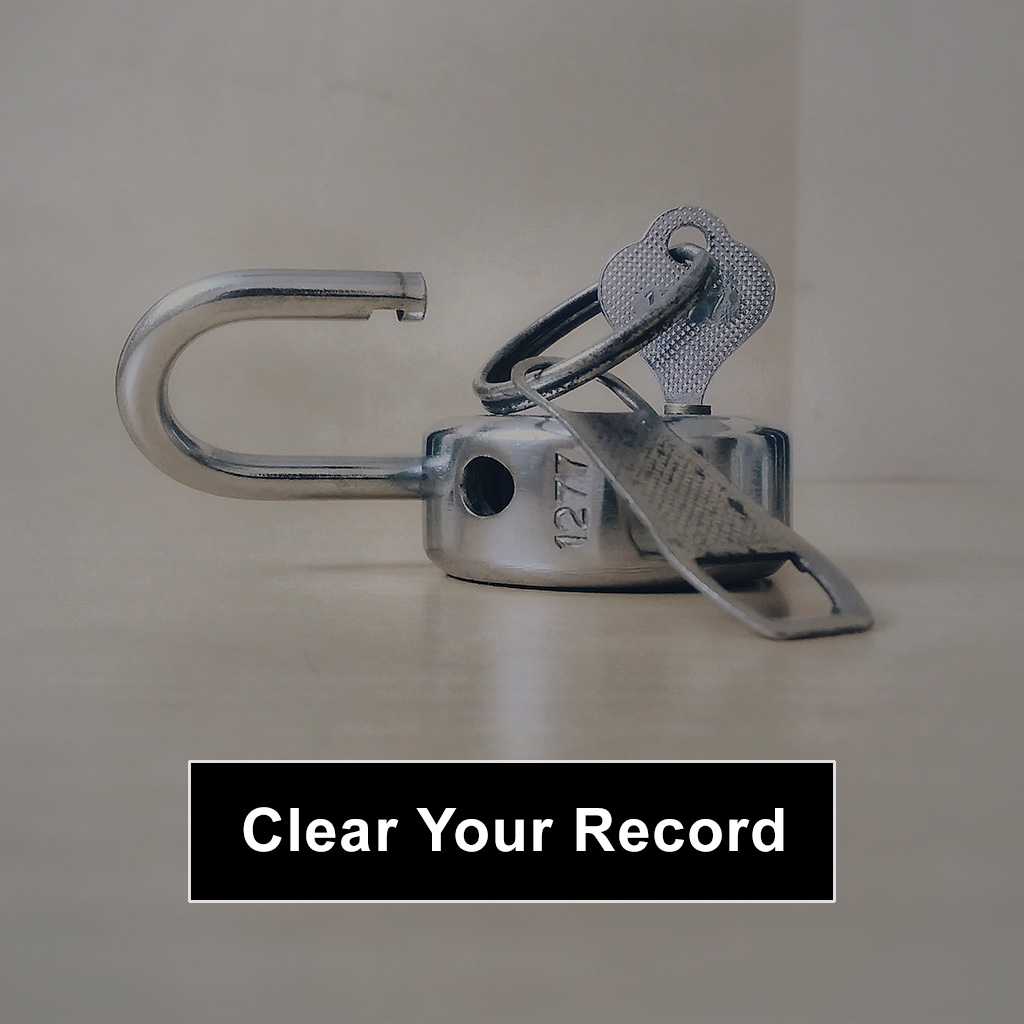EXPUNGEMENT RESOURCES
Clearing Your Criminal Record


Expungement, sealing & other record relief
The strengths and weaknesses of Illinois sealing law, including eligibility criteria and applicable
procedures,
are analyzed in Beth Johnson et al.,
Access Barriers to Sealing of Felony Convictions in Illinois: A Close Look at Law
and
Practice (February 2021).
Public Act 96-0409 (August 8, 2009) amended the Criminal Identification Act,
20 Ill.
Comp. Stat. Ann. 2630/0.01 et seq.
Notably, the law added a new section entitled “Expungement and Sealing.” 2630/5.2.3
The Office of the State Appellate Defender is partnering with the Access to Justice Commission to
prepare and distribute legally correct and user-friendly forms for adult sealing and expungement that
will be accepted in every courthouse throughout Illinois. See the resources that are available at this
link:
https://www2.illinois.gov/osad/Expungement/Pages/Expungement-and-Sealing-General-Information.aspx
A. Expungement
The term “expunge” means “to physically destroy the records or return them to the petitioner and to
obliterate the petitioner’s name from any official index or public record, or both.”
20 Ill.
Comp. Stat. Ann. 2630/5.2(a)(1)(E). However, “nothing in this Act shall require the physical
destruction of the circuit court file, but such records relating to arrests or charges, or both, ordered
expunged shall be impounded . . .” Id.
Non-conviction records: Records that may be “expunged” are described in
2630/5.2(b), and include arrests that resulted in no charges, acquittal or
dismissal; and convictions “set aside on direct review or on collateral attack and the court determines
by clear and convincing evidence that the petitioner was factually innocent.” Notwithstanding the
definition of “expunge” above, records of drug offenses disposed of through diversion programs may be
maintained by the state police.
2630/5.2(b)(7). If a person has a prior conviction of any sort, “the State’s
Attorney may object to the expungement on the grounds that the records contain specific relevant
information aside from the mere fact of the arrest.”
2630/5.2(b)(1.5).4 There is no waiting period for charges that are dismissed or
acquitted, and a short waiting period when the arrest sought to be expunged resulted in an order of
supervision, successfully completed by the petitioner.
2630/5.2(b)(2)
See also “Immediate sealing of non-conviction records,” below.
Pardoned convictions: The only convictions that may be expunged are those that have been pardoned
(if the pardon document authorizes expungement), and the term “expunge” in this context does not mean
physical destruction of the record. See 2630/5.2(e):
(e) Whenever a person who has been convicted of an offense is granted a pardon by the Governor which
specifically authorizes expungement, he or she may . . . have a court order entered expunging the
record of arrest from the official records of the arresting authority and order that the records of
the circuit court clerk and the Department be sealed until further order of the court . . . . All
records sealed by the Department may be disseminated by the Department only to the arresting
authority, the State’s Attorney, and the court upon a later arrest for the same or similar offense
or for the purpose of sentencing for any subsequent
felony. Upon conviction for any subsequent offense, the Department of Corrections shall have access
to all sealed records of the Department pertaining to that individual.
B. Sealing
The term “seal” means “to physically and electronically maintain the records . . . but to make the
records unavailable without a court order, subject to [certain] exceptions,” and to “obliterate” the
person’s name from the official index required to be kept by the circuit court clerk. 20 Ill. Comp. Stat. 2630/5.2(a)(1)(K).
As of August 2017, most misdemeanor and felony convictions are eligible for “sealing” upon petition
three years after termination of the person’s “last sentence” (whether or not sealing is sought for that
conviction). 2630/5.2(c). There is no waiting period in felony cases where the person earned “a high
school diploma, associate’s degree, career certificate, vocational technical certification, or
bachelor’s degree, or obtained [a GED]” during the period of the sentence. 2630/5.2(c)(3)(E). Ineligible
offenses include DUI, sex crimes, animal care crimes, and domestic battery. 2630/5.2(a)(3). Individuals
subject to registration under the following laws remain ineligible until removed from the registry: the
Arsonist Registration Act, the Sex Offender Registration Act, and the Murderer and Violent Offender
Against Youth Registration Act. 2630/5.2(c)(3)(C). Several deferred adjudication authorities involving
“qualified probation” for minor drug crimes are also eligible for sealing after a waiting period of two
to five years (see discussion of Section 1410 Probation and Second Chance Probation below). There is no
waiting period for cases involving dismissal without charge or acquittal.
Subsequent convictions: A person may seek to have multiple convictions sealed in the same
proceeding. However, any felony offense committed after the date of the sealing may not be sealed. In
addition, the court may, upon conviction for a subsequent felony offense, order the unsealing of prior
felony conviction records previously ordered sealed by the court. 2630/5.2(c)(4)
Notice of eligibility for sealing: Upon entry of a disposition for an eligible record under the
sealing authority, the petitioner shall be informed by the court of the right to have the records sealed
and the procedures for the sealing of the records. 2630/5.2(c)(5). Illinois practitioners report that
many courts do not provide such notice, and that there appears to be no mechanism to enforce this
obligation.
C. Procedure and standards
The same procedure applies to expungement and sealing. 20 Ill. Comp. Stat. 2630/5.2(d). Procedure includes notice to DA, and a hearing
upon objection filed. While filing fees can be waived, they vary greatly throughout the state for those
who do not qualify for waiver. Base filing fees range from around $100 to upwards of $500. In deciding
whether to seal or expunge records, judges may consider specific collateral consequences the individual
is facing, the person’s age and employment history, and the strength of the evidence supporting the
conviction. 2630/5.2(d)(7).5 In a high profile 2019 case in which the defendant (a former police
officer) was acquitted, the judge denied both expungement and sealing based on public safety
considerations, applying the procedures applicable under
20 Ill. Comp. Stat. 2630/5.2(d). See Associated Press, Judge refuses to
expunge record of officer in fatal shooting, Nov. 20, 2019, https://www.dailypress.com/sns-bc-us–police-officer-manslaughter-record-20191119-story.html.
Payment of fines and fees: Effective August 2018, the court may not deny a sealing or expungement
petition because the petitioner has not satisfied an outstanding financial obligation established,
imposed, or originated by a court or unit of local government, including fines and fees. “An outstanding
legal financial obligation does not include any court ordered restitution to a victim under Section
5-5-6 of the Unified Code of Corrections, unless the restitution has been converted to a civil
judgment.” Ill. Comp. Stat. Ann. 2630/5.2(d)(6)(C).
Drug test prerequisite for relief: Under Ill. Comp. Stat. Ann. 2630/5.2(d)(3), an application for
sealing or expungement must be accompanied by proof that the applicant has taken a drug test within 30
days before filing the petition. Effective in 2022, this provision was amended to omit any requirement
that the applicant “has passed” this test. In addition, the new law provided that the court may not deny
a petition for expungement or sealing because the test indicates a positive test for the presence of
cannabis within the petitioner’s body. See HB4392, adding 2630/5.2(d)(6)(D).


